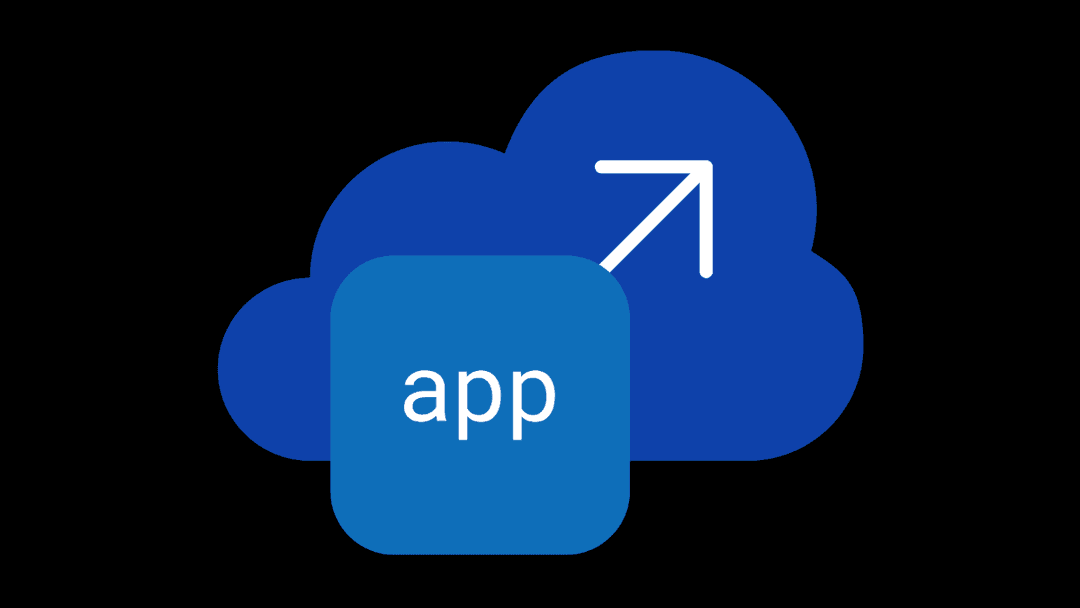In March 2022, the Payment Card Industry (PCI) Security Standards Council (SSC) released the latest version of its Data Security Standard, PCI DSS v4.0, and it officially retired PCI DSS v3.2.1 at the end of March 2024. PCI DSS is a worldwide standard that defines the minimum technical and operational security requirements for compliance by any organization storing, processing, or transmitting payment card data.
Representing a major leap forward in payment card data security by designing greater flexibility and risk control than prior versions, PCI DSS v4.0 and its updates (the latest version of the PCI DSS standard is v4.0.1) provided best practices for organizations to follow. However, in a little over 3 months (after March 31, 2025), these PCI DSS v4.x “best practices” will switch to requirements that will be applied to any PCI DSS assessment.
PCI DSS v4.x stresses the vital nature of securing sensitive cardholder data throughout the lifecycle of a payment card. Requiring encryption, regardless if cardholder data is in transit or at rest, emphasizes the importance of payment transaction and data protection while providing preemptive defense against emerging threats.
PCI DSS and WAFs
In PCI DSS v3.2.1, organizations had the option to protect public-facing web applications manually or with automated application vulnerability security assessment tools at least annually or after significant application changes. Or they could opt to install an automated solution in front of any publicly facing web application to continually detect and prevent web-based attacks, configured to block or generate alerts on attacks. But PCI DSS v4.x will require organizations to deploy a solution in front of public-facing web applications to continually detect, prevent, and generate an alert on web-based attacks (PCI DSS v4.0 subsection 6.4.2).
That is exactly what a web application firewall (WAF) does. A WAF is installed in front of publicly facing applications to check application traffic, detecting and protecting against any web-based attacks. A WAF prevents application layer attacks, including attacks that may exploit common and unknown vulnerabilities in applications and their software supply chain—the core code, third-party libraries, build tools, and other code that compose today’s complex, sophisticated applications. WAFs also protect against attacks attempting to exploit implementation or configuration flaws and automated attacks against payments, credentials, and installed applications.
How F5 can help
F5 secures any application and API anywhere. Our WAF solutions can be deployed in front of any application, regardless of where the application lives. Whether you need a WAF to protect applications that are on premises or in data centers or in the cloud, F5 has a WAF solution that will deliver comprehensive application layer security and protection from exploits and attacks. F5 WAF is available as an appliance, in software, or in the cloud via self-service or managed service, securing containerized applications and Kubernetes, and more.
F5 products are certified as a Level 1 PCI DSS service provider. A service provider, as defined by PCI SSC, is an organization that does not provide branded payment cards or other form factors, but does process, store, or transmit cardholder data or sensitive authentication data for another organization. Companies delivering services to control or impact security of cardholder data or sensitive authentication data, like F5 through F5 Distributed Cloud Services, are also classified service providers of PCI DSS v4.0. F5 product features help our customers meet PCI DSS requirements as merchants, defined by the PCI SSC as any entity that accepts payment cards bearing the logos of any participating payment branded as payment for goods and/or services.
F5 Distributed Cloud Services provide numerous services that address many sections and subsections of the PCI DSS v4.0 standard for organizations that store, process, or transmit payment card data.
F5 Distributed Cloud WAF secures apps anywhere—across clouds, data centers, and edge locations. As an intermediate proxy, Distributed Cloud WAF inspects application requests and responses, blocking and mitigating risks, including the OWASP Top 10 categories, threat campaigns, malicious users, layer 7 DDoS threats, bots and automated attacks, to list a few. It mitigates web application attacks and vulnerabilities through comprehensive, consistent security controls and policies, with observability that is easy to configure, deploy, manage, and scale. F5 Distributed Cloud WAF simply and seamlessly integrates protection into your app development process enabling faster, more secure application delivery and release cycles. By utilizing signature- and AI-based detection techniques with automated signature tuning, F5 Distributed Cloud WAF delivers fast, simple application layer security with maximum efficacy. The new AI assistant within Distributed Cloud Services aids in simplifying security for distributed apps and APIs through a natural language interface with real-time insights, actionable recommendations, and a summary of data reports.
F5 NGINX App Protect is a lightweight, high-performance WAF designed to protect APIs and modern applications across distributed architectures and hybrid environments with consistent protection. Platform-agnostic, NGINX App Protect seamlessly integrates within your application development process, detecting and securing against application attacks, including layer 7 denial-of-service (DoS) attacks and bots. A powerful, low-latency app security solution, NGINX App Protect enables you to scale app security in Kubernetes clusters and the cloud, helping to significantly reduce your compute costs. It delivers a multi-layered defense, mitigating active cyberattack campaigns and surpassing OWASP Top 10 category protection.
F5 BIG-IP Advanced WAF is F5’s flagship web application firewall. The detection and mitigation in the award-winning Advanced WAF serves as the engine for Distributed Cloud WAF and NGINX App Protect. With behavioral analytics, layer 7 DoS mitigation, application layer encryption of sensitive data, and threat intelligence services, BIG-IP Advanced WAF protects applications across distributed, hybrid environments from an array of application attacks. BIG-IP Advanced WAF provides a dedicated, dynamic dashboard that quickly, simply ensures security from threats listed in the OWASP Top 10. BIG-IP Advanced WAF includes guided configurations for common WAF use cases, a learning engine, and allows granular policy customization of security policies.
Extensive protection from F5
In addition, F5 can address more areas applicable to the PCI DSS v4.0 standard.
- APIs are a key component of nearly all transactions across industries and organizations. PCI DSS v4.0.1 introduces several new requirements meant to protect and secure APIs as part of tailored and custom software. F5 Distributed Cloud API Security helps address many of these new requirements, delivering controls safeguarding APIs that also help prevent or mitigate common software attacks and vulnerabilities. For greater insight into the API security requirements found in PCI DSS v4.0.1, please read Ian Dinno’s blog, PCI DSS 4.0.1 Update: Major New API Security Upgrades Required for Customer Payment Processors, and look for a new blog in early 2025 with additional details.
- F5 Distributed Cloud Web App Scanning dynamically and continuously scans your external attack surface, uncovering exposed web applications and APIs. Through its automated penetration testing capabilities, Distributed Cloud Web App Scanning identifies and reports potentially exploitable vulnerabilities, even those deep within your software supply chain. It helps you better secure your apps and APIs from attack and exploit. Distributed Cloud Web App Scanning also helps you address PCI DSS v4.0 subsection 6.3.2.
- F5 Distributed Cloud Mobile App Shield seamlessly protects your mobile apps from malware, bots, data leakage, unauthorized access, and man-in-the-middle (MiTM) attacks that results in compliance violations, financial loss, customer churn, and reputational harm. Distributed Cloud Mobile App Shield delivers unmatched runtime and at rest protection to proactively harden your mobile apps, prevent tampering, block bad bots, data exfiltration, and API abuse.
- PCI DSS v4.0 subsection 8.4.2 mandates that multi-factor authentication (MFA) be implemented for all access to the Cardholder Data Environment (CDE), which may be comprised of system components that store, process, or transmit cardholder data or sensitive authentication data, or have unrestricted connectivity to those systems. F5 BIG-IP Access Policy Manager (BIG-IP APM) enables zero trust application access, which includes limiting access to applications and data according to privilege based on any number of factors, including date and time. BIG-IP APM can secure cardholder data and sensitive authentication data in transit. It also allows step-up authentication, which would require defined users—such as those accessing the CDE or remote users—to enter a different set of authentication credentials than those they used for initial access, including different MFA credentials.
- To detect and promptly address failures of critical security control systems, including IDS / IPS and anti-malware solutions, there’s F5 BIG-IP SSL Orchestrator. BIG-IP SSL Orchestrator provides encrypted threat protection by decrypting encrypted traffic and steering the decrypted traffic through your existing security stack via customizable dynamic service chains. It also load balances the traffic to solutions in your security stack, monitors the health of all solutions in your security stack, and can manage the updating of ciphers for your security solutions. Plus, if one of your security solutions goes offline, you can quickly mitigate the danger via BIG-IP SSL Orchestrator’s dynamic service chains, enabling you to bypass the offline solution and mitigate any detrimental impacts, like unintentional traffic bypass. And when you need to swap out a security solution, BIG-IP SSL Orchestrator efficiently addresses security service changes and insertions, seamlessly transferring decrypted traffic for inspection without interrupting traffic flow. BIG-IP SSL Orchestrator will help you address PCI DSS v4.0 subsections 10.7.2, 10.7.3, and 11.5.1.1.
Putting it all together
As noted above, F5 will help you address many of the new requirements of PCI DSS v4.0—whatever your specific needs and surrounding priorities are—before they are mandated by March 31, 2025.
For more information on F5’s ability to address PCI DSS v4.0 standards, please review the following:
Important Changes in PCI DSS 4.0.1 You Should Know About
The PCI DSS 3.2.1 Clock Has Hit the Midnight Hour... Are You Ready for 4.0?
Defense Against Bots Should Also Help Drive PCI DSS Compliance
What Is PCI DSS? Overview, Requirements, and Benefits
For additional information, please reach out to your F5 account manager, channel manager, or F5 channel partner.
About the Author

Related Blog Posts

Why sub-optimal application delivery architecture costs more than you think
Discover the hidden performance, security, and operational costs of sub‑optimal application delivery—and how modern architectures address them.

Keyfactor + F5: Integrating digital trust in the F5 platform
By integrating digital trust solutions into F5 ADSP, Keyfactor and F5 redefine how organizations protect and deliver digital services at enterprise scale.

Architecting for AI: Secure, scalable, multicloud
Operationalize AI-era multicloud with F5 and Equinix. Explore scalable solutions for secure data flows, uniform policies, and governance across dynamic cloud environments.

Nutanix and F5 expand successful partnership to Kubernetes
Nutanix and F5 have a shared vision of simplifying IT management. The two are joining forces for a Kubernetes service that is backed by F5 NGINX Plus.

AppViewX + F5: Automating and orchestrating app delivery
As an F5 ADSP Select partner, AppViewX works with F5 to deliver a centralized orchestration solution to manage app services across distributed environments.
F5 NGINX Gateway Fabric is a certified solution for Red Hat OpenShift
F5 collaborates with Red Hat to deliver a solution that combines the high-performance app delivery of F5 NGINX with Red Hat OpenShift’s enterprise Kubernetes capabilities.
